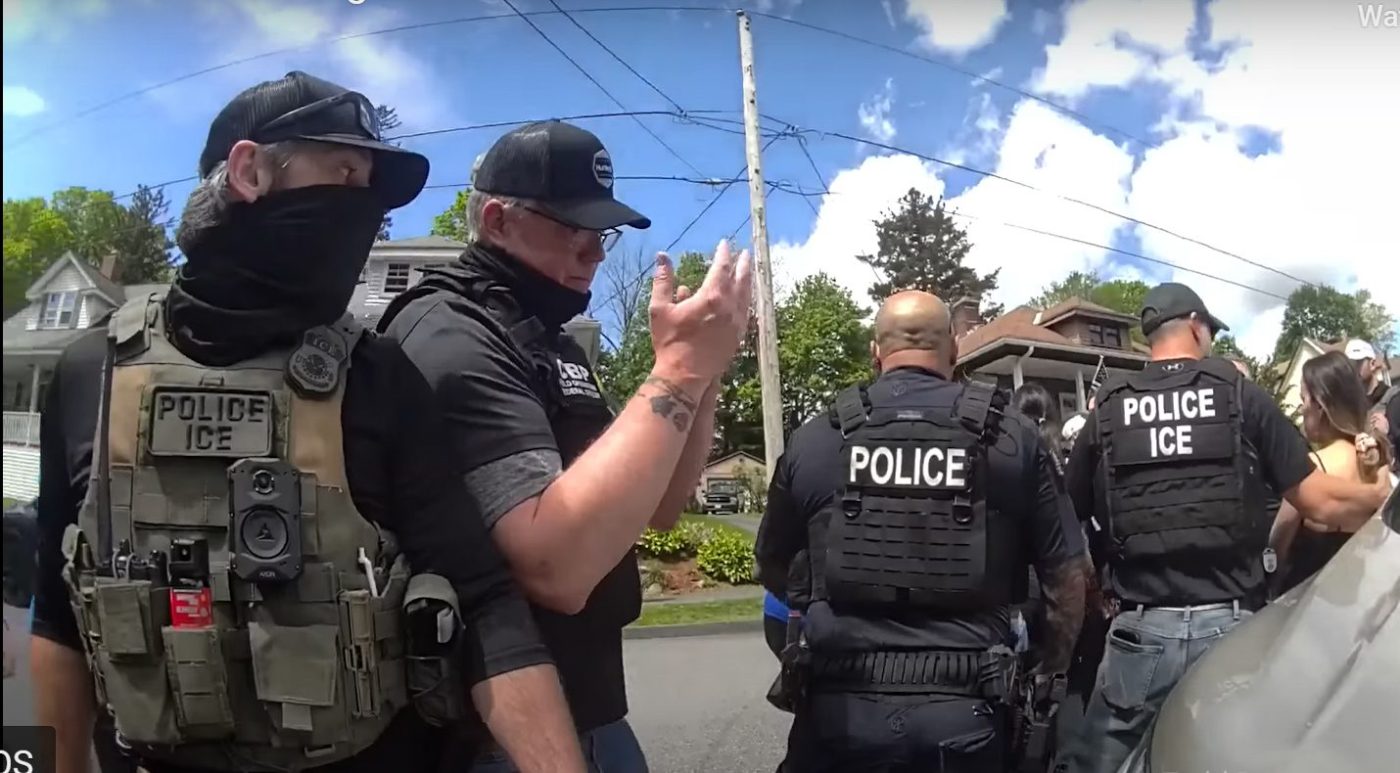
AG’s office issues guidance for ICE encounters amid increased enforcement
As Immigrations and Customs Enforcement officials oversee a surge in activity across the Bay State, Attorney General Andrea Campbell’s office is issuing guidelines for residents who may encounter federal immigration authorities.
Campbell says the guidance comes in response to questions her office has received over ICE’s law enforcement practices.
“From arresting parents in front of their children to pulling people who present no public safety threat out of their cars in broad daylight, the aggressive ICE tactics we’re seeing across the Commonwealth do not protect the public, and instead spread fear. In releasing this guidance, I strongly encourage everyone to inform themselves of their rights when they see immigration officers in their communities,” she said in a statement.
Here’s a summary of the AG’s guidance.
What kind of immigration enforcement does ICE engage in?
ICE is empowered to arrest anyone subject to removal from the country, according to the AGs office. An arrest may be the result of a civil removal order or because of a criminal matter, but arrests may also occur when ICE agents in the field encounter those they suspect may be subject to removal, sometimes called “collateral arrests.”
Does ICE need a judicial warrant to arrest someone?
No, though they may have one if the circumstances call for it. Many ICE arrests, Campbell’s office says, come after the issuance of an administrative warrant, which is different from a warrant signed by a judge.
When can ICE enter people’s homes and other private spaces?
ICE can enter a home or private place only if they have a criminal warrant signed by a judge, the AG’s office advises. An administrative warrant signed by ICE officials does not allow them entry into a private residence or non-public areas of businesses. A person can consent to allow ICE to enter their home or non-public space, but does not have to without a judicial warrant.
What rights do the person arrested/detained and bystanders have?
Those arrested by ICE have a right to remain silent and have the right to hire and speak with an attorney but not necessarily the right to court provided legal counsel, the AGs office says. An arrested person also does not have to sign any document presented to them but should strive to be honest on documents they do fill, according to the AG, as it’s a crime to lie on many government forms.
Bystanders have a right to observe and record ICE operations from a “reasonable distance,” according to the AG’s, so long as they don’t interfere with law enforcement activities. Bystanders also have a right to remain silent, do not have to answer questions about their immigration status or that of others, and can refuse entry to ICE agents who do not present a signed judicial warrant.
Neither bystanders nor those under arrest have any sort of legal right to assault law enforcement officers, the AG warns.
What questions can someone ask if they are being arrested/detained?
Though Campbell’s office says arresting ICE agents don’t have to answer questions, some poignant ones to ask include: “Am I being detained? Am I under arrest? What is the reason? Do you have a warrant? Can I see it? Where are you taking me? What agency do you work for? What are your names and badge numbers? How can my family or lawyer contact you?”
What, if anything, can bystanders do to assist someone being arrested/detained?
There is nothing a bystander can legally do to prevent an arrest from occurring. Anyone witnessing an ICE arrest, Campbell guidance indicates, can ask questions of the person being arrested such as “do you have an immigration lawyer I can call for you” or “is there a family member you would like me to call” but can not interfere with an apprehension.
Recordings and written notes about observed enforcement activity can help a detained person, the AGs office indicates, so long as bystanders do not interfere with an arresting officer when gathering information.
What happens after an ICE arrest?
Those arrested can be held locally or taken to any ICE facility in the country, Campbell’s office reports, and may be presented documents to sign which could result in their removal without a hearing before an immigration judge.
Prompt submission of a habeas corpus petition can prevent a person’s removal from the country or local area, but it must be filed very soon after a person’s arrest as their transfer elsewhere could occur very quickly, according to Campbell’s guidance.
What limits are there on local police cooperation with ICE?
State law prohibits local law enforcement from engaging in immigration activities, though local police will respond if ICE operations are interfered with or officers are assaulted or in danger.
Can bystanders get in trouble for watching or recording?
No, as long as they are not interfering with immigration enforcement operations, bystanders are allowed to watch and record law enforcement activities that occur publicly. According to Campbell’s office, the “bottom line” is that bystanders can watch and record, but “bystanders legally cannot obstruct, impede, or assault an ICE agent.”


